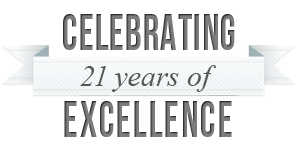I always have been passionate about what I do—the important work my company performs for our nation; the amazing solutions we provide to tough challenges; and, most of all, the terrific people with whom I work. If you don’t feel that same kind of passion, career guidance is not going to make a great difference.
Be inquisitive, advancing yourself by absorbing every bit of knowledge you can. Learning is important from every source—the media, professional journals, books, and those around you. Plus, never be afraid of asking dumb questions! Lifelong education translates into better problem solving, deeper subject knowledge, and proficiency; it can pave the way to higher-skilled, better paying positions.
Communication also is essential. Over the years, I’ve learned that the keenest insights are those born in free and open dialogue with diverse stakeholders—from the most senior customer to the newest hire on the factory floor. In such an environment, more often than not, everyone succeeds. Speak up and bring your different points of view to meetings, conversations, and correspondence. Use your experience, education, and skills to contribute alternatives or clarifying examples.
Find a mentor; delve into how that person performs, manages, and delivers results. Besides mentors, also surround yourself with networks. Demonstrate confidence, but also be your own toughest critic by strictly monitoring your performance against personal goals. Clearly define your career desires and make them known to those who help steer your path. Accept blame when it is due, and acknowledge your mistakes this builds your credibility.
Finally, concentrate on your ‘emotional intelligence’. Technical and intellectual skills are only part of the equation for success. People who can understand, communicate, and empathize with colleagues will go farther in their careers than those unable or unwilling to do so. Bring these skills with you to all interactions. The growing perception in business is that someone’s abilities to understand and manage emotions improves their performance, their collaboration with colleagues, and their interaction with customers.







